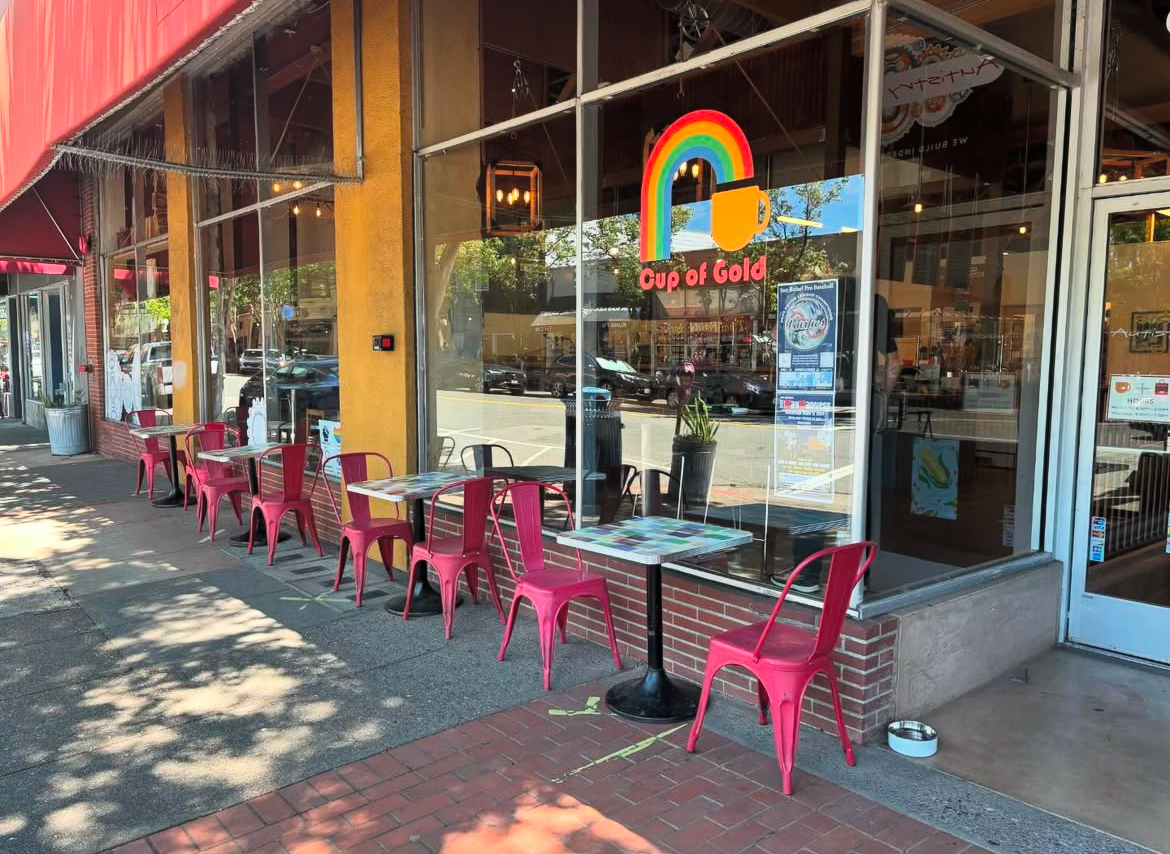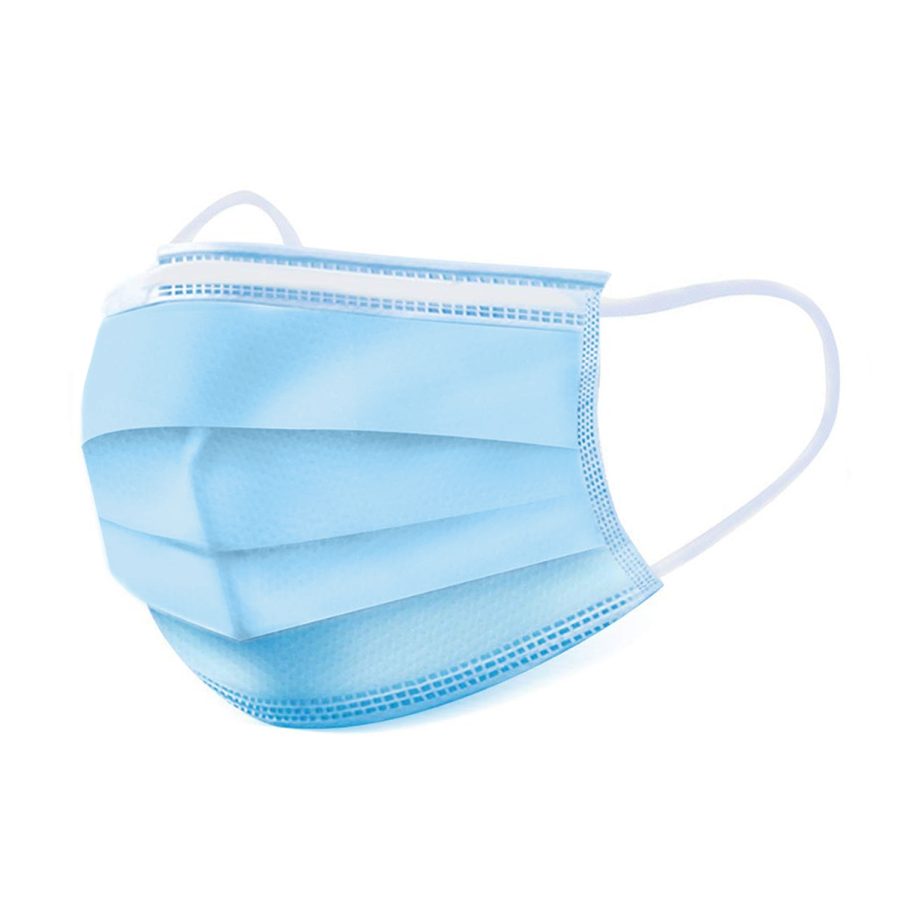Disabled Lives Are Not Disposable
March 10, 2022
The Omicron Surge
It was eerily easy to find parking on the cold mornings of January 2022. Gone were the days of commuting between Montecito overflow parking to the San Rafael High School campus. I found this realization immediately unsettling. Part of me just wanted to believe that a large number of students had simply prolonged their vacation, but that idea was unequivocally false. Nearly half of our student body was home sick with the Omicron variant of Covid-19.
I vividly remember sitting in classrooms that first week after break and hearing teachers and students alike joke about how we were all on a “sinking ship” and that we were all going to get Covid. Some people even found this idea comforting. If we all got covid – they asserted – we could get over the pandemic sooner. After all, it’s a mild variant right? It’ll only hurt people who have bad immune systems, are sick, or old.
I’m a student at San Rafael High School, I am the proud owner of a disabled body and I did not find these thoughts comforting. Unlike the bodies of my healthy peers, mine would have a very hard time fighting off and recovering from Covid – even if I only caught the omicron variant.
My peers weren’t alone in their ideas about the handling of the omicron variant, though – their ideas were echoed by leaders on local, state, and national levels. Dr. Rochelle Walensky, the director of the CDC, told Good Morning America “the overwhelming number of deaths, over 75%, occured in people who have 4 or more comorbidities – so really these are people who were unwell to begin with. And yes, really encouraging news in the context of the omicron variant.”
This news was not “encouraging” for those of us who have four or more comorbidities. For clarity, comorbidities are chronic conditions that put you at higher risk for serious illness from Covid-19. Included in this list of comorbidities are conditions like diabetes, mental health challenges, ADHD, cancer, heart conditions, or isn’t regularly physically active. Even being pregnant or having a history of smoking are comorbidities. More people than you think reach the threshold of four comorbidities or more. Your friend who has diabetes, deals with depression, takes meds for her ADHD and isn’t super into sports is one of these people. Your neighbor who is pregnant, has depression, has a heart condition and doesn’t walk often has 4 comorbidities. These are the people in your community who you love, care about, and interact with on a daily basis.
While more and more students were staying home from school feeling sick with Covid, many of us wondered why we didn’t make the switch to remote learning for a few weeks while the surge passed.
In the answers to this question, it was clear that able–bodied students were being prioritized. Some of this prioritization was fair, student mental health challenges saw a rise in depression, anxiety and social isolation over distance learning. Most of the people I talked to were desperate to stay in person – and understandably so. Students predominantly cited worries about their mental health worsening while teachers were concerned that they would lose valuable instruction time.
Dr. Lisa Santora is the Deputy Health officer for Marin Health and Human Services. I asked Dr. Santora about her opinions on keeping schools open. “Students suffered with online learning…our driving goal is to do everything we can to keep schools open,” Santora said. When I asked her if this goal took the needs of high-risk kids into consideration, her answer was simple: “Every student in Marin County should be in school in person, full time.”
Unmasking
Now that the omicron surge is over, the parking lot is getting filled up quickly again and my commute is getting longer. But attitudes around Covid haven’t changed much. In one week, school districts across California (and the country), including San Rafael City Schools, are dropping the masking mandate for vaccinated students and staff and non vaccinated people alike.
On March 3rd, 2022, Marin County Public Health released a statement saying that they would align with state guidelines and no longer require students or staff to mask regardless of vaccination status. These guidelines will take effect on March 12, 2022. In this press release, MCPH stated that they were still “strongly recommending” that students and staff still wear masks. The most worrying part of this statement, however, is that MCPH says that schools should continue to “prepare for the next epidemic wave.”
This guidance from Marin County Public Health is confusing at best, and at worst – incredibly misleading. Students and staff members should not be expected to have to do their own calculations to decide whether unmasking is safe or not. “For me, if they say it’s [unmasking] fine, it’s fine,” Ryan, a junior at San Rafael High School told me. Ryan kept his last name private. Ryan isn’t wrong. When county, state, or national leaders tell us that something is safe, we should be able to trust them. But with unclear data and confusing guidance at play, it’s hard to know what we can trust.
Meanwhile, disabled students like me feel trapped between a rock and a hard place. Our options are to go to school and risk getting seriously ill or to stay home and risk not graduating. Neither option is appealing.
Ms. Merrill, a librarian at San Rafael High School, has a family member with a compromised immune system. “I don’t feel comfortable,” Merrill said. “I’m going to keep wearing a mask. I think it’s too early.”
The issue of keeping disabled people safe should not fall on students who already have an immense workload, librarians who manage hundreds of students a day, or administrators who already have enough on their plates. Guidelines that protect our most vulnerable populations have to come from the top down. We need our county officials to take a strong stance in protecting our student body.
Creating Covid policy is an undeniably difficult job and very rarely are there easy or perfect answers. But the fact remains that while able bodied people are on their way to get “back to normal,” those of us who live in disabled bodies are being left behind and left to fend for ourselves.
Disabled lives are valuable and making small sacrifices like wearing a mask to protect us shouldn’t be an option – it should be a given.







































Olivia • Apr 14, 2022 at 11:30 am
This is a super important article! Great job Cadence 🙂